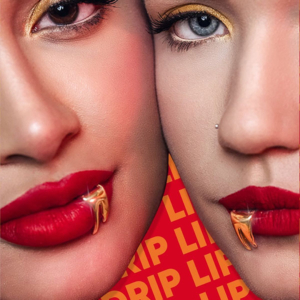
Generation Z consumers are different than those in other generations—including millennials—according to a Women’s Executive Leadership Forum panel on the subject, held in New York City on Oct. 27, sponsored by the Women’s Jewelry Association and Citizen Watch America.
Mark Beal, a Rutgers University professor of practice in public relations who has specialized in Generation Z, defined the cohort as encompassing those born between 1997 and 2012, which means some Zoomers are not yet teenagers.
Even so, “if you don’t invest in [marketing to] Gen Z now, you’ll be out of business in 10 years,” Beal said. “These are your future customers, your future brand advocates. They can’t be ignored.”
Below are 11 insights about Gen Z from the panel.
– You can’t sell to Generation Z without talking to them.
“This is a generation that you can’t casually date, you have to make a commitment to them,” said Carla Wilke, chief marketing officer for Citizen Watch America. “Then, you start to engage in an active dialogue with them and see where you have permission to play. It may not be the place where you think you have permission to play. Once you start to engage with Gen Z, ask them, collaborate, experiment.”
One key entrance point: knowing how many of your customers are members of Generation Z. Citizen always asks its customers for their gender and age range when they register a Citizen watch.
“You can learn a lot by talking to the customer, by asking them,” said Rob Harvath, vice president of consumer insight and data management for Citizen Watch America. “We’re very careful with [their] data, but it does help us to know who our customer is, how many of them are Gen Z, and what we can do to work to grow that business.”
– They like to see brands be “adaptive,” “authentic,” and “creative.”
Generation Zers “pride ourselves on being adaptive,” said David Williamson, a Rutgers graduate student who spoke on the panel. “We want to see that from our brands as well. The perfect example is the COVID-19 pandemic. We were college students, and we had to adapt and learn and live through that.”
Another panelist, Naamah Barbut, a Rutgers undergrad, said she favors brands that are “creative, authentic, that have a purpose, and always try to push two steps forward.”
– You have to grab their attention quick.
You must be “able to create advertisements that are visual but also short,” said Williamson. “We consume a lot of media through YouTube, through social platforms. When the ads are very short, I’m more enticed to watch those, compared to a 20-second ad that I can skip after five seconds.”
He said his attention span for most ads was about five seconds.
– They want to feel like they’re “part” of the brand.
“They want to be advocates for your brand, they want to promote the great things the brand is doing,” said Beal. “Loyalty in the past might have been, ‘I’m going to stick with this company, I’m going to continue to purchase their products.’ That is still transactional.”
Gen Zers “want to be part of the brand, part of the family of this brand, that they’re immersed in this brand, that they have a stake in this brand.”
– Their biggest influencers are not necessarily who you’d think.
“I look for influencers to wear certain brands, not celebrities,” said Williamson. “I have celebrities that I look up to, but they breathe a different air than I do. They have more money than I do.
“When a celebrity is partnering with a brand or a company, I’m turned off by it pretty much right away, just because of where I’m at in my life right now. When I’m looking at an influencer, I know they’re around my age, and I can afford what they are wearing and what they might be representing.”
Harvath said that when Citizen studied the most potent Gen Z influencers, “the top two [categories] were musicians and actors. The number three was fashion. If you’re a jewelry brand, and you think about who you might want to have as an influencer, a fashion influencer might be better for you.“
There was also an intriguing difference between Generation Z men and women.
“While overall, actors and musicians were at the top, among men, it was athletes and gamers. Gamers were number eight among women, but were number two among men.”
He noted that “micro-influencers,” with only a few thousand followers, often have more sway over their followers than big accounts.
As far as successful influencer campaigns, Barbut singled out Megan Thee Stallion’s recent release of the song “Anxiety,” which was accompanied by a mental health website that also sells merchandise.
“That is a full-360 circle about how you market something,” said Barbut. “Not only are you making things available to purchase, there’s a purpose to it. That made me want to listen to the song, buy the shirt, and visit the website.”
– They are very interested in mental health.
“Gen Z is looking for brands to make mental health a feature of their campaigns,” said Beal. “If a brand had a campaign that was genuine and authentic around mental health, it would catch their attention.”
– A brand’s values are important.
“Gen Z is a generation of activists,” said Wilke. “Every brand they buy, every shirt they wear, is a statement. They are concerned about the world that they may or may not inherit. Every choice is a very considered choice. They may not be able to control climate change, but think, ‘I can make a difference with every dollar I spend.’ ”
But, in contrast to attitudes generally attributed to millennials, Williamson said it was “hard to appreciate a brand taking a political stand. If that’s part of who they are, fine. But I feel like our generation is starting to live in a fear a little bit…. Cancel culture is scary to our generation. We all make mistakes. I’m assuming that everyone in their 20s has some type of thing that they regret. And that’s scary, as we try to start our careers.”
– Secondhand and rental appeals to them.
“They really do look to find value in thrifting,” said Harvath. “McKinsey did a study that said resale could be bigger than fast fashion in 10 years.”
Added Barbut: “In terms of jewelry and sustainability, I’ve been thinking about secondhand. For the past several years, I’ve been really into thrifting. It is most of my closet: coats, bags. And I’m now getting into thrifting my jewelry—finding vintage stores that sell vintage rings, vintage gold necklaces, earrings. I know that’s better for the environment, and also the fact that it’s vintage has a cool aspect to it. In terms of sustainability, that is the route I would take.”
– They want to be talked to respectfully.
“We don’t want to be belittled, we want to be spoken to as equals,” said Barbut. “A word that comes to mind that I remember some brands using, thinking that it would be cool, was cheugy. Every time either myself or my friends would see that that in a tweet or an Instagram post from a company, it was an automatic no for us.”
Ironically, the word cheugy means something that is “trying too hard” or “out of date,” according to The New York Times. It is sometimes used by Generation Z to described things associated with millennials.
– A brand role model? Nike.
Just about all the panelists singled out Nike as a brand that does a good job reaching out to Generation Z.
“Nike has a done a great job of messaging what they mean,” said Williamson. “When I’m wearing a Nike logo on my shirt or my sock, I feel I’m part of that message.”
Added creative strategist Will Henry: “Nike offers shoes every single week, and they all have different stories. Even if you don’t like [what they offer], you can give it respect, think, ‘cool, it’s not for me, but I see what you’re doing here.’”
– Want more insights? Ask an actual Gen Zer.
“Instead of presuming, hypothesizing with what Gen Z looks for, bring Gen Z into the boardroom, connect and collaborate with them,” said Beal. “Every brand, every company has new hires. Their output is going to be genuine. Gen Zers know better than anybody else how to form that tweet, that post, that content, to fit the intended Gen Z audience.”
The panel was moderated by brand strategy consultant Makena Drutman.
Photo: Getty Images
Follow JCK on Instagram: @jckmagazineFollow JCK on Twitter: @jckmagazine
Follow JCK on Facebook: @jckmagazine





